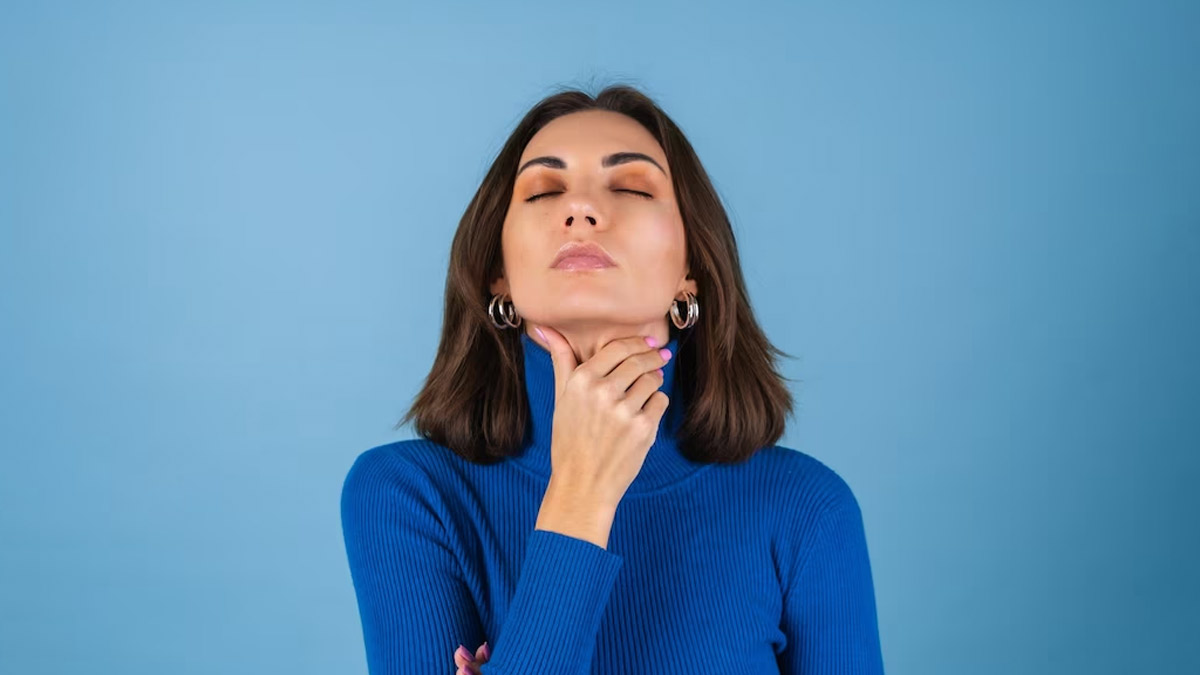
The thyroid, a small butterfly-shaped gland located at the base of the neck significantly contributes to our well-being. It plays a pivotal role in human development and is responsible for hormones that regulate metabolism and growth. Unfortunately, around 200 million people worldwide are dealing with issues related to their thyroid. What's even more concerning is that half of these people don't even know they have a problem. This is a big deal, especially for women and the elderly. In India, where about 30% of the population is female, thyroid problems are a significant health issue for women.
Table of Content:-
We spoke to Dr Mukesh Batra, Founder and Chairman, Dr Batra's Healthcare, and Padmashree recipient, who explained why women are more prone to thyroid disease and how to manage it.
Decoding The Gender Bias

Women experience a complex hormonal journey that includes premenopausal and postmenopausal phases. These transitional phases often coincide with a higher frequency of hypothyroidism and thyroid nodules.
“Pregnancy introduces additional complexities, as hormonal shifts during this period can impact thyroid function. Moreover, the female hormone, oestrogen, is closely connected to a key thyroid hormone called thyroxine. This connection is crucial at different stages of life like puberty, pregnancy, and menopause, making women more likely to have issues with their thyroid”, informed Dr Batra.
Recognising how clinical symptoms change with age is crucial, as it is more noticeable in women over the age of 50, as stated in Cureus. This highlights the importance of understanding how thyroid problems change as women get older.
Also Read: Stress and Thyroid Health: Expert Explains How Stress Affects Thyroid Health
Autoimmune Nature Of Thyroid Problems
“Another layer to the gender disparity in thyroid disorders lies in their autoimmune nature. Many thyroid disorders, including the common hypothyroidism and thyroid nodules, have an autoimmune component”, said Dr Batra.
The immune system, in its misguided defence, can turn against the thyroid gland, leading to disruptions in its normal functioning. This autoimmune aspect contributes significantly to the elevated prevalence of thyroid disorders in women.
Symptoms And Types Of Thyroid Disorders

Recognising thyroid disorders is vital, given their subtle yet impactful symptoms. Dr Batra listed some of its symptoms:
- Joint pain
- Weight gain
- Dizziness
- Infertility
- Fatigue
- Increased sensitivity to colds
Besides, understanding different types of thyroid disorders- hypothyroidism, hyperthyroidism, thyroid nodules, and thyroid cancer is key to early diagnosis and effective management. Among the diverse types of thyroid disorders, hypothyroidism stands out as the most prevalent issue observed in women.
Also Read: Managing Thyroid Health With Diet: Expert Explains How Diet Can Help Optimise Your Thyroid Health
Role of Homoeopathy in Treating Thyroid Disorders

Unlike conventional treatments, homoeopathy emerges as a holistic and side-effect-free approach. This complementary medical system, renowned for determining the root causes, assures effective and long-lasting treatment without creating a lifelong dependency on medications or surgeries. Dr Batra listed homoeopathic remedies for thyroid disorders as follows:
- Thyroidinum is recommended for individuals with facial puffiness and weight gain concerns
- Calcarea Carbonica proves effective for addressing excessive weight gain related to thyroid issues
- Natrum Mur is known for its efficacy in addressing specific complaints associated with hypothyroidism, including depression, hair thinning, and hair loss.
- Graphites are a suitable remedy for hypothyroid patients who are both significantly obese and overly sensitive to cold
Bottomline
Dr Batra concluded, “Beyond medical interventions, adopting natural strategies becomes important. Maintaining a healthy weight, correcting iodine deficiencies, addressing vitamin and mineral imbalances, managing stress, and maintaining hormonal balance are integral components of a holistic approach to managing hypothyroidism. Also, you should always consult with a qualified expert for treating hypothyroidism.”
[Disclaimer: This article contains information provided by a registered healthcare professional and is for informational purposes only. Hence, we advise you to consult your expert if you are dealing with any health issues to manage your condition.]
Also watch this video
How we keep this article up to date:
We work with experts and keep a close eye on the latest in health and wellness. Whenever there is a new research or helpful information, we update our articles with accurate and useful advice.
Current Version